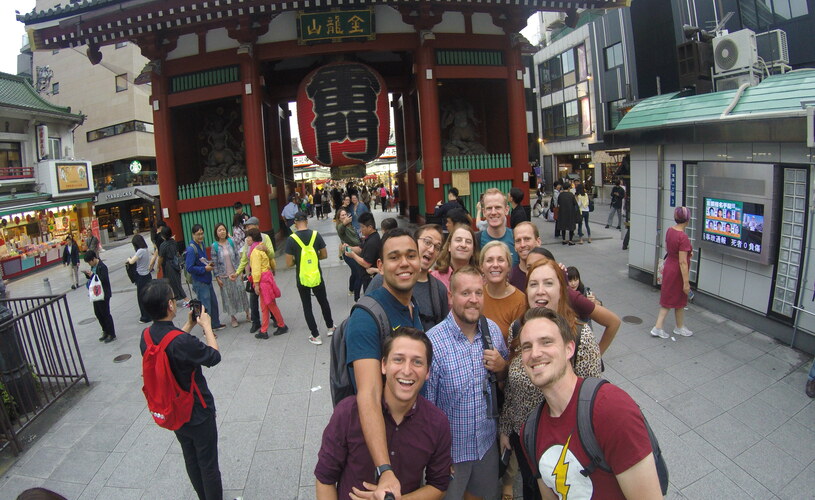The Value of an MBA After the COVID-19 Pandemic
There’s no denying it—the workplace changed irrevocably thanks to the onset of the COVID-19 pandemic. These changes may have impacted your goals, plans, and dreams as well. If you’re considering earning your MBA, you may be wondering whether it still has the same value as before the pandemic. Can you still get the job you want with this advanced degree? Is an MBA the best way to invest your time and money?
Here, we dig in deep to help you discover the answers.
What Employers Want
Employers are looking for a different set of skills in job candidates, especially those who are applying for leadership positions, now that the pandemic has made its mark. While many of the basics haven’t changed, adaptability to new economic challenges is a necessity.
Specific things employers are looking for in leadership positions after the pandemic include:
- The ability to manage a workforce that is entirely remote. With COVID came the end of working in person for a large portion of companies, including some of the biggest businesses in the world. While the principles of management and leadership remain mostly the same regardless of how your team works, keeping up camaraderie and communication is an entirely different task when your team is fully remote.
- Adaptability, especially in the face of full-scale crises. If or when the next pandemic hits, will you be prepared? What will you do when working in office is no longer a possibility and things seem to be falling apart around you? Keeping a cool head and staying calm when crisis strikes is a new must for all leadership hires.
- Understanding of supply chains and the changes that occur within them. Supply chains were heavily disrupted with the onset of the pandemic, and in many cases they were paused on incredibly short notice. If you have a firm understanding of how supply chains work and how specifically the supply chain affects the company you work for, you’ll be more prepared to keep a level head in the face of complications.
- Strong understanding of strategy and interpersonal skills. The strategies that allowed companies to find their ideal customers changed during the pandemic and continue to change on a daily basis now. Do you have more than just the know-how of your industry? Employers are looking for soft skills like teamwork, communication, and true leadership ability.
- A commitment to diversity, equity, and inclusion in the workplace. Diversity, equity, and inclusion in the workplace enable employees to gain valuable insight to different perspectives. Additionally, consumers care more than ever about the values of the companies they purchase from. How can you show your commitment to diversity and inclusion and how do you allow that commitment to change your processes?
How MBA Programs Adapt
Thankfully, MBA programs are all too aware of the changes happening in the workforce and the economy. Faculty often have more than 10 years of experience running businesses and standing as leaders in prestigious organizations within their communities, which allows them to change their approach to teaching as needed.
Utah’s MBA Programs are designed to help you develop not only the hard skills you need to lead a team but the soft skills you need as well. LinkedIn recently released a list of most in-demand skills employers are looking for and an MBA program will help you gain all of them. Soft skills are even more crucial nowadays, since the pandemic emphasized the need individuals have for personal connection in the workplace. Good leaders and managers use their soft skills to help everyone feel appreciated while navigating the difficulties of an ever-changing economy.
The ROI of an MBA
Perhaps your real question is whether you’ll recoup the cost of your MBA, and if so, how long it will take you. Good news: in 2021, the Graduate Management Admissions Council (GMAT) did a study to determine whether average salary for MBA graduates was returning to pre-pandemic levels after a drop. They found that “the median salary for M.B.A.s is projected to return to its pre-pandemic level, $115,000, after dipping to $105,000 three months into the pandemic. The survey also found that 91 percent of recruiters expect to hire M.B.A. graduates in 2021, a rebound to pre-pandemic hiring expectations.”
But the return on investment of an MBA is greater than even its monetary value. When you pursue a program through the University of Utah, you gain an irreplaceable network of peers and mentors, career advisement professionals who can help guide you through every step of your journey, and an education you won’t find anywhere else.
David Warren, Head of the MBA Career Advancement Services, adds, “The value of an MBA in terms of professional, personal, and financial improvement has grown even stronger since before COVID, as shown by GMAC surveys of 3,600 alumni from 2010 through early 2021 and of 4,658 alumni reported in August of 2021. These graduates’ qualitative satisfaction with the value of their MBA is further supported by the quantitative validation our four MBA programs offer, in terms of quick payback and ROI. Add to these measures the lifetime value of the Eccles network – providing students insider access, with advocates, to a vast network of hidden and gated opportunities – and the increasing value of our offering is beyond reasonable question.”
Conclusion
Don’t toss your MBA aspirations aside because of the pandemic. In fact, get even more excited—the value of the degree you’re pursuing is even higher than it was beforehand. We have every confidence you’ll see a great ROI when you place your education in the hands of Utah’s MBA Programs!
Interested in learning more about our four amazing programs? Get started here.






